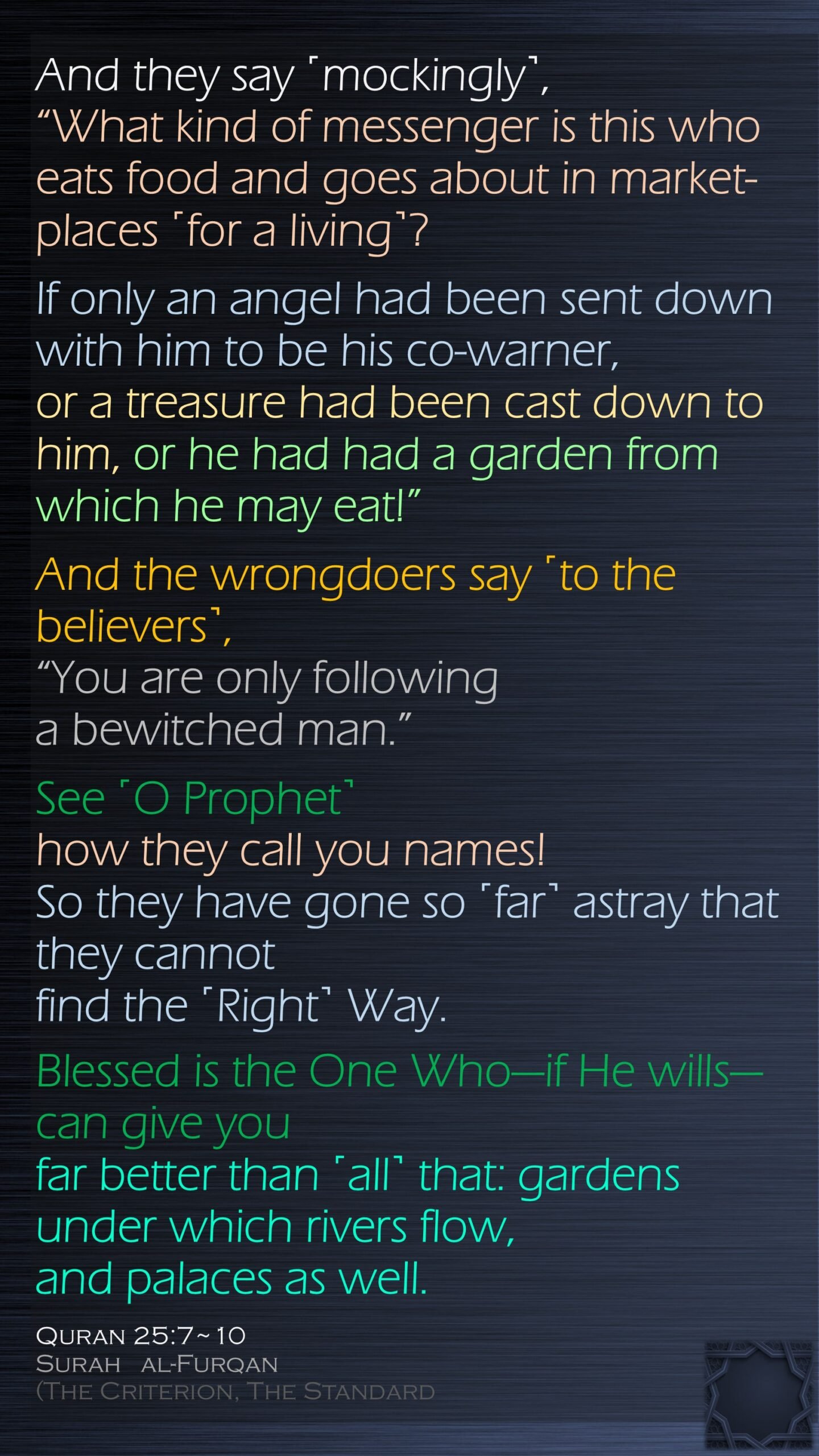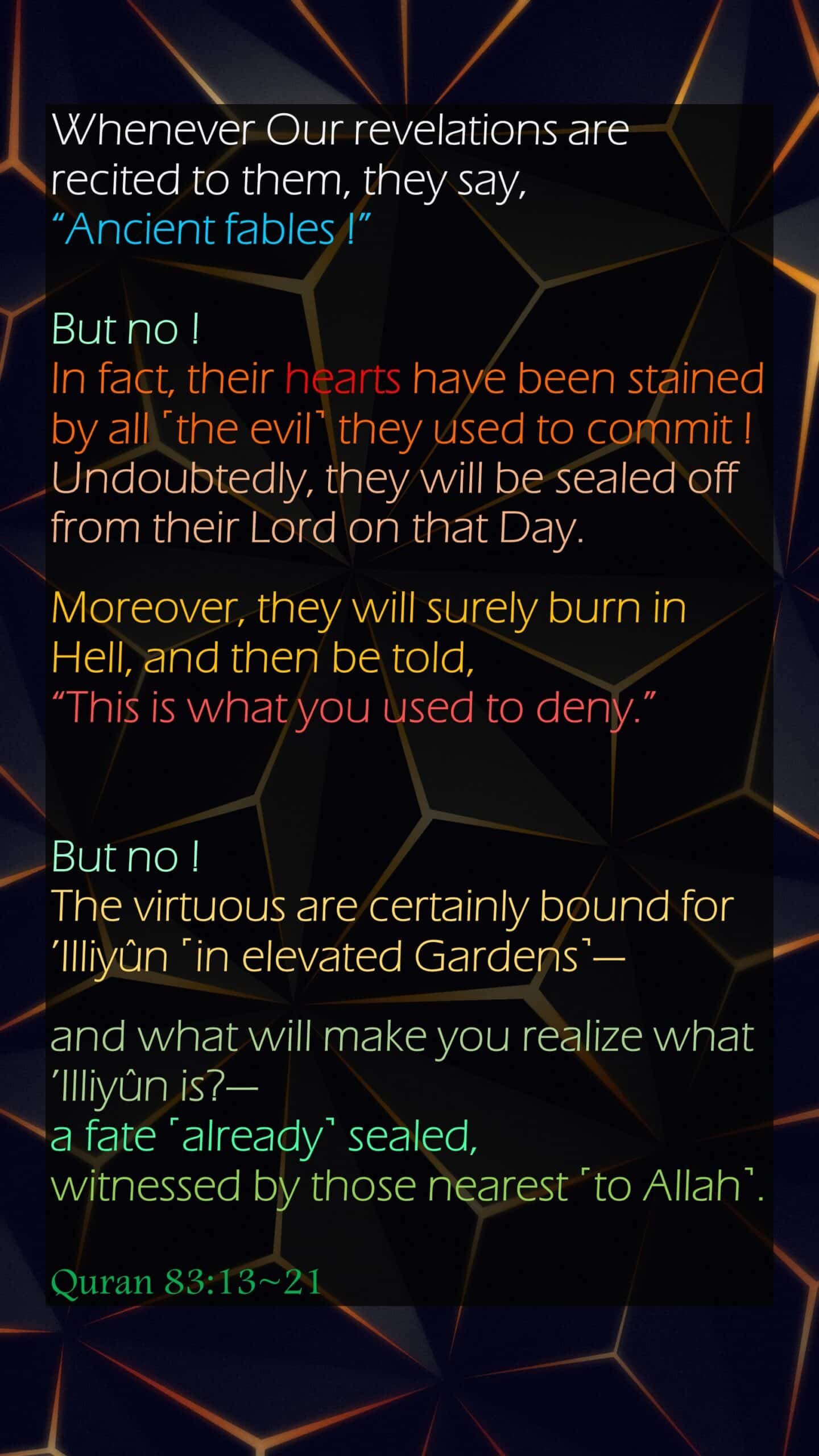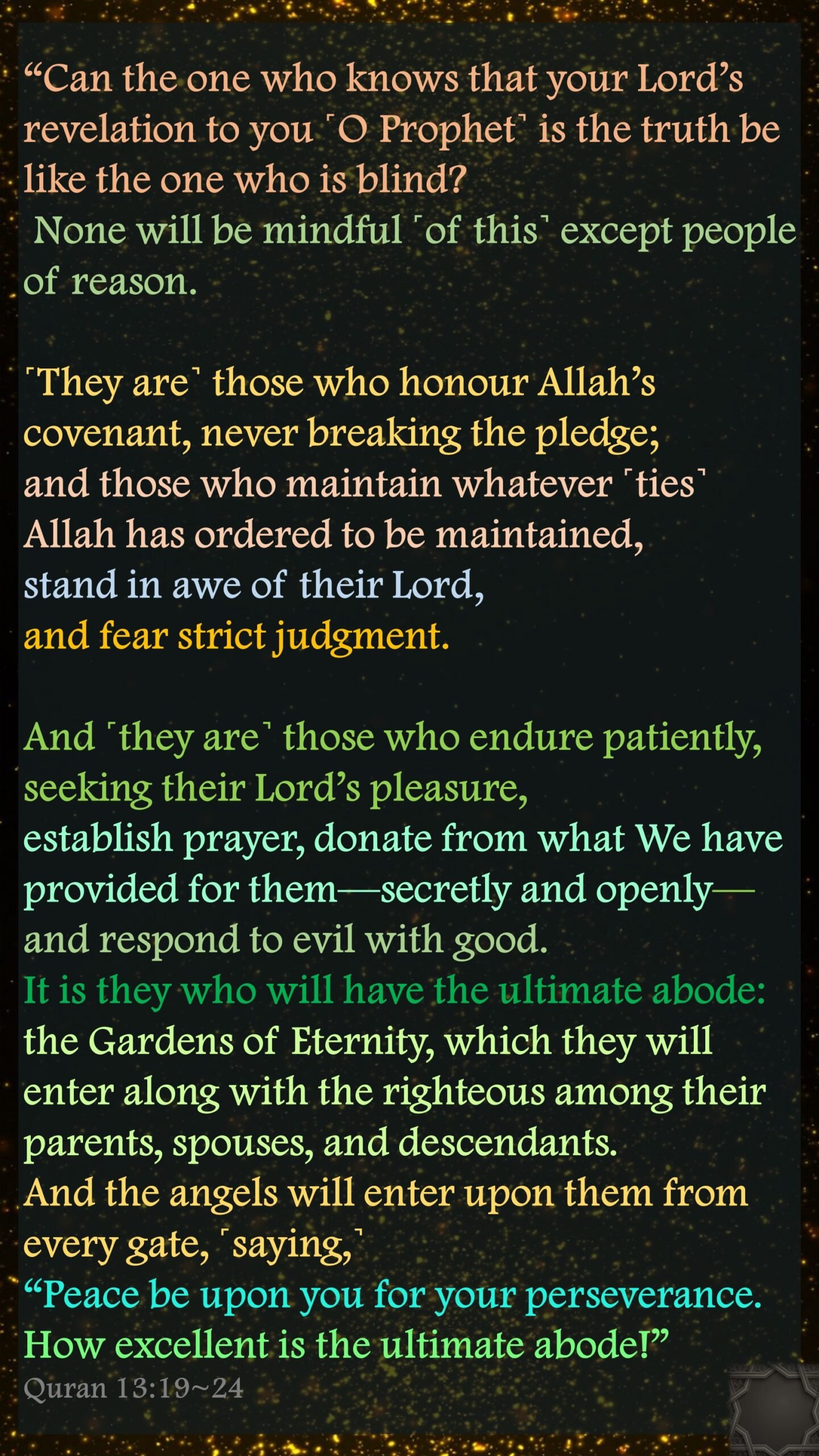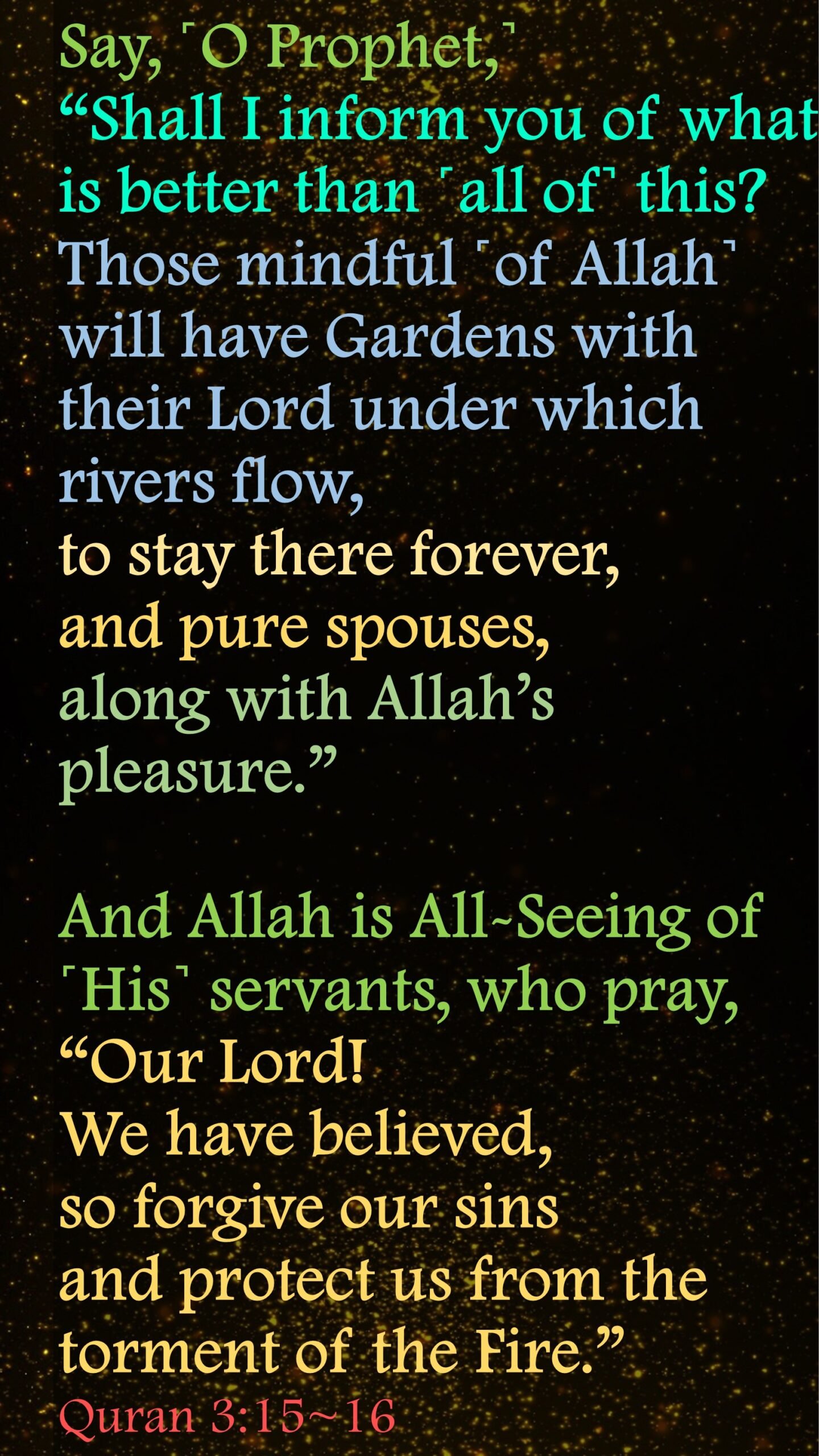10
Apr, 2023
Quran 83:13~21
Islam, Quran Allah, ancient, ayat, Bliss, burn, Chapter 83, commit, daily, day, dear, deeds, deny, elevated, fables, fate, Gardens, hearts, hell, illiyun, inspirations, islam, islamic, judgement, Near, quran, revelations, sealed, sealed off, stained, Surah, verses 13 to 21, virtous, witness, سورة المطفّفِین
31
Mar, 2023
Quran 13:19~24
Islam, Quran abode, Allah, Angels, awe, ayat, blind, covenent, daily, desendants, endure, Eternity, evil, excellent, Gardens, gatemperseverence, good, inspirations, islam, islamic, judgement, Lord, mindful, openly, parents, patiently, pleasure, pledge, prayer, provision, quran, revelation, rughteous, secretly, spouses, Surah, ultimate
29
Oct, 2022
Quran 3:15~16
Islam, Quran All-Seeing, Allah, ayat, believe, better, chapter 3, daily, fire, forever, forgive, Gardens, hell, inform, inspirations, islam, islamic, Lord, mindful, PBUH, pleasure, pray, Prophet, protect, pure, quran, rivers, SAWW, sins, spouses, torment, verse 15, verse 16
10
Jul, 2022
Quran 3:15~17
Islam, Quran all, All-Seeing, Allah, ayat, before, believe, better, chapter 3, charitable, daily, dawn, fire, forever, forgive, forgiveness, Gardens, Heaven, hell, inspirations, islam, islamic, Lord, mindful, obedient, patient, PBUH, pleasure, pray, prayer, Prophet, protect, quran, rivers, SAWW, servants, sincere, spouses, Surah, Tahajjud, verses 15 to 17
8
Jul, 2022










